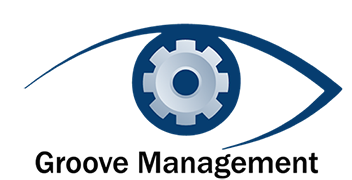WHY YOU SHOULD HIRE OUTSIDE YOUR COMFORT ZONE
The workplace is a microcosm of society, but there are some major differences. Unfortunately, managers who tend to hire people much like themselves have staffed the typical workplace. We tend to connect better with people that have similar interests and backgrounds. Therefore most offices are far less diverse than the society around us. Hiring people who are similar to us can be very detrimental to the growth and success of a business. Innovation and creativity tends to occur when conflict and tension exists. If everyone acts the same and works in total harmony, the opportunity for new ideas and breakthroughs is often limited.
Having worked in a few smaller organizations that had cult like cultures, I saw first hand the impact of myopic thinking. My job was to coach our leaders and managers. I specifically recall a conversation with a hiring manager (Jane) after she interviewed a highly qualified job applicant (Claus).
Groove Management: "Jane, how did the interview go?"
Jane: "The interview went fine. Claus has an excellent background, but I don't think he would fit in here."
Groove Management: (Not surprised at the response, I probed deeper) "Why wouldn't Claus fit in?"
Jane: “He has a very disciplined and rigid style. He has only worked in larger organizations that value process and rules. Our organization is much more free flowing.”
Groove Management: (A valid point on the surface, but I probed further) “What do you need in this role and for your department to grow?”
Jane: “I need a 'can-do' person with a strong background in operations. Someone who can help us create consistency in our approach.”
The conversation continued and Jane finally realized that Claus was actually exactly what she needed on the team. Jane was so caught up in finding harmony and someone like her that she almost dismissed the candidate who actually embodied exactly what she and her team needed to grow.
The point is that organizations too often allow personal bias and desire for harmony to influence decision-making. Hiring the right person for the job, not the person most like the rest of those in an organization is a winning approach.
To complicate things further many companies utilize personality assessments to aid in the hiring decision. They begin by bench-marking successful people within the organization and then create an ideal fit profile. Based on fuzzy math they determine what to look for in candidates. If a candidate does not score well (meaning fit the ideal profile) they are likely to pass on the candidate. The result of this line of thinking is an organization filled with clones, people with very similar strengths and personality traits. Progress occurs when there is disruption and a team comprised of people who think alike is highly unlikely to push the organization forward. While assessment tools can be helpful, organizations should be careful not to rely too heavily upon them in their hiring decisions.
The best companies leverage diversity as a strength.
The decision to hire someone with a different work style and approach is the easy part. The harder part is flexing your style as a manager to allow someone with a different work style than yours to be themselves and excel. Too often we try to change people to fit in to an organizations culture. The best companies leverage diversity as a strength. They try to hire people with diverse work styles, and backgrounds and most importantly they create space within the organization for people to play to their personal strengths.

